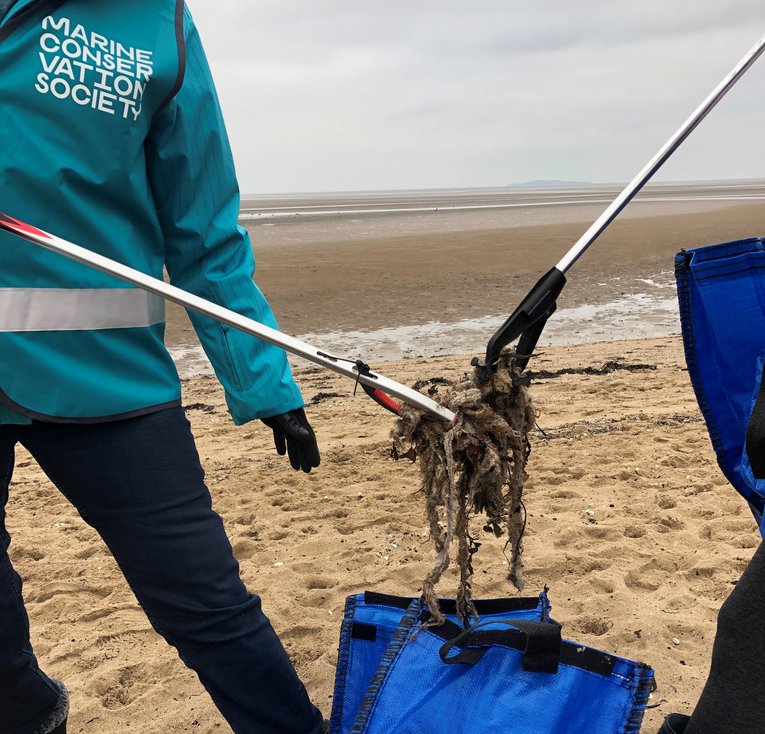
Help us wipe out plastic in wet wipes
We want to see plastic wet wipes banned. Join our call for action now.
A journey to the coast and sea
Wet wipes and other sanitary items like sanitary pads, tampons, tampon applicators and nappies can end up on beaches and in the ocean when they’re wrongly flushed.
Once flushed, these items make their way to the coast and sea through sewer overflows. These are used to relieve pressure on the system from things like heavy rainfall or a lack of capacity in the sewer system.

Wet wipes polluting a beach in Scotland
Credit: Catherine Gemmell
Beach pollution
We need to stop plastic getting into our ocean. Items – like wet wipes – can break down into microplastics which have been found in marine life.
Plastic, both big and small, reduces animals’ ability to thrive in the ocean- trapping them, blocking their digestion, reducing their food intake and harming their reproduction.

Credit: Kirsty Crawford
Average number of wet wipes found on UK beaches during 2021's Great British Beach Clean
15
%
litter recorded in 2022 was sewage-related
5
th
most common plastic item was wet wipes in 2022
Time for action
As more plastic enters the ocean, its impact continues to increase, damaging fragile underwater ecosystems and harming wildlife.
That's why we need governments across the UK to take action to ban plastic wet wipes and stop them polluting the ocean.
How to support a ban on plastic wet wipes
Thanks to those of you who took the time to share your views with the Scottish Government on their updated Marine Litter Strategy, and with the Department for Environment, Food and Rural Affairs in England.
Your voice is incredibly important in showing widespread support for actions to stop marine litter at source. Both the English and Scottish consultations have now closed. We'll be sure to share updates and progress - stay tuned!

